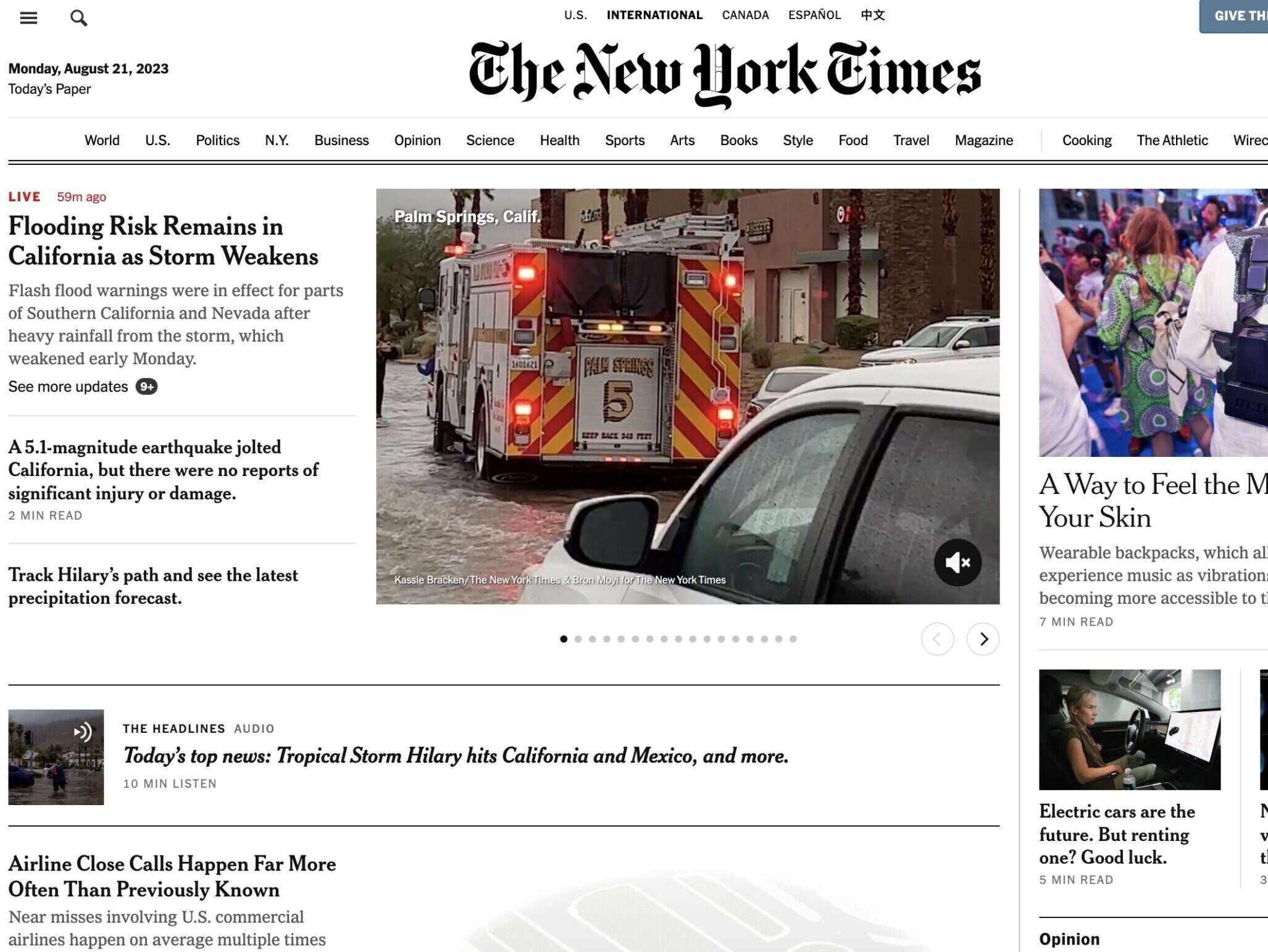The 8-Minute Rule for News Websites
The 8-Minute Rule for News Websites
Blog Article
All About News Websites
Table of ContentsThe Ultimate Guide To News WebsitesSome Known Details About News Websites The smart Trick of News Websites That Nobody is Talking AboutNews Websites for DummiesSome Known Details About News Websites
It was down in the UK and Brazil however up a few other countries, such as Greece, Bulgaria, and Poland (News Websites). This year, for the very first time, we asked concerning the various manner ins which people avoid the information and located that around half of avoiders (53%) were attempting to do so in a broad-brush or routine method for instance, by turning off the radio when the information began, or by scrolling past the information in social media sitese.g. scrolling previous news, changing channels when information begins. of avoiders inspect sources much less often. e.g. limit to certain times of day, transforming off notices, etc. of avoiders avoid some subjects. e.g. subjects that lower mood or increase anxiousness. You stated that you try to actively stay clear of news.

I'm probably selecting to find out more light-hearted stories than I used to currently. M, 51, UK Turning my back on news is the only means I feel I can cope in some cases. I have to purposely make the effort to turn away for the sake of my very own psychological health.
Fascination About News Websites
Selective avoidance of Ukraine news was greatest in a lot of the countries closest to the dispute, enhancing findings from our additional survey in 2015, quickly after the war had begun. Our data might not recommend an absence of interest in Ukraine from nearby countries however rather a wish to take care of time or protect mental wellness from the very real scaries of battle.
Contrasting Finland with a politically polarised nation such as the USA (see following graph) that is less affected by the war, we find a very different pattern of topic avoidance. In the United States, we find that consumers are more likely to avoid subjects such as national politics and social justice, where debates over issues such as sex, sexuality, and race have actually become highly politicised.
American national politics are rather poisonous nowadays. I discover occasionally that I need to separate from stories that just make me angry. F, 61, USA For some individuals, bitter and disruptive political discussions are a factor to shut off news completely, yet for some political upholders, avoidance is typically about blocking out perspectives you do not intend to hear.

The News Websites PDFs
Some are looking to make information more obtainable for hard-to-reach groups, expanding the information program, appointing more inspiring or favorable news, or accepting positive or options journalism that offer people a sense Bonuses of hope or individual firm. In our study this year, we asked participants about their rate of interest in these various approaches.
This describes why stories like Ukraine or national politics do well with information regulars but can at the exact article source same time transform much less interested users away (News Websites). Careful avoiders are much less curious about all types of news than non-avoiders however in loved one terms they do seem to be much more thinking about favorable or solutions-based information

News Websites Things To Know Before You Get This
2023). This might be real in the moment, but in time it seems to be leaving lots of people empty and less completely satisfied, which may be weakening our link with and depend on in the information. Across markets, total count on news (40%) and count on the resources individuals use themselves (46%) are down by an even more 2 percentage points this year.
Certainly, through the rear-view mirror, the COVID-19 trust fund bump is plainly visible in the complying with chart, though the direction of traveling after that has actually been mixed. In some instances (e.g. Finland), the depend on increase has actually been preserved, while in others the upturn looks more like a spot her explanation in a tale of ongoing long-term decline.
A few of the greatest reported levels of media criticism are located in nations with greatest levels of suspect, such as Greece, the Philippines, the United States, France, and the UK. The most affordable levels of media criticism frequent those with higher levels of trust, such as Finland, Norway, Denmark, and Japan.
The 8-Minute Rule for News Websites
This year we asked participants regarding their preferences for text, sound and video when eating information online. Generally, we locate that the bulk still prefer to read the news (57%), instead of watch (30%) or pay attention to it (13%), but more youthful people (under-35s) are most likely to pay attention (17%) than older teams.
Behind the averages we locate substantial and unusual nation differences. In markets with a strong analysis practice, such as Finland and the UK, around eight in 10 still prefer to check out on-line information, however in India and Thailand, around 4 in ten (40%) say they choose to see news online, and in the Philippines that proportion mores than half (52%).
Report this page